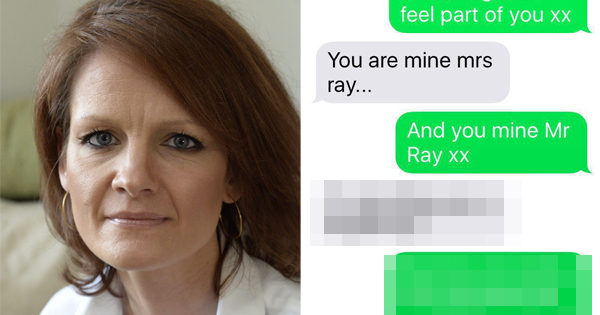After finding out the truth about her online lover, a 44-year-old woman wanted the British government to criminalize people who uses fake profile information on dating sites, SWNS reports.
Anna Rowe wanted the government to make a law that would force every user of dating sites to use their real names and profile photos. Rowe was recently duped by a man who went by the name “Antony Ray” on Tinder.
Rowe thought that Ray was a rich and luxurious city lawyer. She had been talking to him for about a year. Then, she learned that his photos are fake, his profile is fake, and that the man behind “Antony Ray” is married.
“Antony Ray” used a photo of a famous Bollywood actor to catfish Rowe. Their communication and relationship turned into a passionate and romantic one. “Ray” even repeatedly asked Rowe to marry him.
Rowe said, “He broke my trust, took away my right to choose. I did not consent to having a relationship with a married man, or a man who was actively having relations with multiple women simultaneously.”
She continued, “This man used me like a personal hotel with benefits under the guise of wanting the romantic, loving relationship he knew I craved.”
Rowe, who’s a teaching assistant, said that she felt like she was used as a “personal hotel with benefits.” Rowe comes from Rough Common in Kent.
Rowe immediately fell for “Ray” after they met for the first time on November 3, 2015. “Ray” continued to visit her at home at least twice a week for six months. Rowe accepted him even after she found out that he used fake photos.
“Ray” told Rowe that he worked as a businessman and that his work forced him to fly to Germany and Ireland every now and then. 2016 came and “Ray” began to wane due to what he claimed his mother’s sick and had ovarian cancer.
Rowe said, “He walked into my house with a quiet confidence, calm and an ease that felt like he had done the same every night for years.
“It was like he was supposed to be there. He instinctively knew how to hold me. It was like I’d known him and him me for far longer than we had.
“He asked me to marry him several times, called me his life, his heart, his soul. He called me his wife and told me to call him my husband. He would be there for me always and we had the rest of our lives together.
“He constantly told me he loved me and sent me voice messages saying we would get through any obstacle that came our way. He told me he couldn’t get through this without me.
“My heart hurt for all he was going through. He would tell me how much it meant to him that he knew I was there for him, that I had his back.”
After not visiting her for at least five months, “Ray” finally confessed to her about all of his lies. After months of no contact, Rowe checked his Tinder profile to see if he’s still alive. She found out that he’s online and looking for women.
Rowe said, “His alias was a clever twist on his real name. Then I sat and cried and cried. Worst of all was finding out he was married.
“Everything that hadn’t added up over the months, all the red flags and bad gut feelings over things that I had felt and pushed aside because I trusted him more than I did myself, or he had given me a reasonable answer to a question or I’d told myself I was being paranoid.”
In order to catch him of his lies, Rowe created a fake profile and began to chat with “Ray.” She discovered that he used the same sentences and tactics that he told her. After a day of chatting, she unveiled herself and told her that it was actually her.
Rowe discovered that “Ray” was a top legal executive who’s in the capital city for his work days while he goes back to his home in the north of England with his family.
Rowe said, “I am a victim of a catfish approach. Using a fake profile and online identity as a platform to lure women or men for sex should be illegal, but it’s not.
“The result is the other party believing they are beginning a real relationship with the hope of a future together and having sex is part of that believed relationship.
“Creating a fake online profile with the intent to use women or men for sex, should be a crime under the fraud act, communications act and sexual offences act.”





